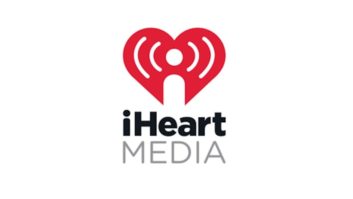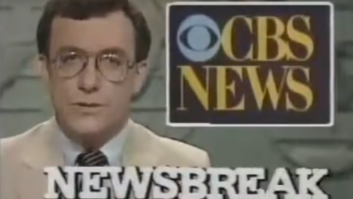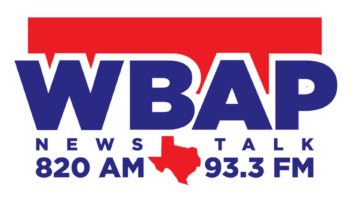Surprise! When Satellite Subscribers Tune Back to AM/FM, Research Suggests, It’s Because of News, Weather and Traffic
The author is a news/talk specialist with McVay Media.
As Arbitron does, I gathered up some people willing to be interviewed, Adults 18+, roughly 50/50 male/female, evenly distributed across the United States. They got an online questionnaire, which you can try at www.hollandcooke.com
So far, I have 1200+ completed responses. To put that sample size in perspective:
* If you’re in a medium market, that may be roughly the number of diaries in-tab for your market’s entire Arbitron survey.
* Unless you are one of New York’s top stations, you’re probably not mentioned in 1200+ diaries.
* Many national presidential polls are derived from smaller samples.
I asked, “What do you like most about the AM/FM stations you listen to?” Their top three responses are “music,” “information” and “It is local.”
Music – Notwithstanding iPod, Sirius and XM, and the dreadful way music stations have cluttered and homogenized programming, people still use radio as a music appliance.
One recurring and useful theme is the commentary alluding to “choice,” “control” and “variety.” People seem to view radio as a menu, offering answers like “Most FM stations have a particular format, so you can choose which one to listen to.” “The ability to listen to programs I like and the ability, if they are offensive, to change the station.” “Music, NPR and Howard Stern.” And “Talk radio in the morning; music choice.”
Information – Comments addressed the programming staples that smart programmers constantly tweak and relentless consultants nag about: “Information about traffic.” “News – if anything happens before I go to work, I know.” “The weather.”
Some corresponding “dislike” comments you’ll read in a minute underline the importance of time-sensitive programming.
It is “local.” – The Number 3 reason they like radio really hits a nerve, after all the cutbacks local radio has suffered in consolidation.
In the process of using research to derive information about our craft, we often have to probe to get a sample to articulate something which this sample came right out and volunteered: Listeners like radio because it delivers something competing audio products cannot – local information, stuff too local for satellite radio and more timebound than programming they load onto iPods.
Those surveyed offered answers like “What is local to my world.” “Local flavor and information.” “They have my local news.” And “I love Chicago talk radio.”
This unsurprising distinction perceived by listeners is bittersweet news, as radio has compromised itself so much by paring local programming resources. Any station that invests in engaging, relevant local content – and effectively markets the advantages of listening – will benefit.
Another notable comment that researchers often have to work to unearth, but which this sample offered unprompted, is pertinent to defending AM/FM radio against the Sirius/XM paid subscription model: “It’s free.”
Dislikes
The survey also asked: “What do you like least about the AM/FM stations you listen to?”
Many of these comments restate listeners’ likes by describing how radio stations disappoint them.
Commercials – Listeners’ biggest beef was an unsurprising and overwhelming consensus. Radio’s two most injurious self-inflicted wounds post-consolidation were draconian cutbacks in local programming, while we were torturing listeners with intolerable commercial loads (and while iPod emerged and Sirius and XM’s commercial-free channels launched).
Listeners appreciate that AM/FM radio, unlike satellite radio, is free. They understand that the trade-off is commercials, as with over-the-air television. But radio’s ratings, and this research, show us there are limits – and that radio has crossed the line.
Answers include “Too many commercials, many of which are embarrassingly amateurish.” “I hear the same ads over and over.” “There is far too much advertising on the radio stations, and too much time between songs on FM stations.” And “Commercials about male enhancement products.”
Repetition – Yes, people value radio as a music appliance. But those surveyed said, “The music selection is annoyingly repetitive.” “A classic rock station has 30 years of music, but they seem to rotate the same 50-100 songs.”
Yes, people value radio as an information appliance. But those surveyed disliked “Repeated news reports – if you keep listening, they keep repeating.” “Everything is owned by Clear Channel, so the same personalities do weather, traffic, news on all stations.”
Yes, people value radio as a forum, but “the talk is nearly all right-wing wacko stuff.”
Comments regarding technical issues included “static,” “interference” and “some stations can’t be heard in bad weather.”
The survey screened out Sirius and XM subscribers who acquired satellite radio because it came factory-installed in a new car. What we’re after is why deliberate aftermarket installers went so out of their way.
Answers include “more music variety,” “commercial-free music,” “better reception than AM/FM” and “better audio fidelity.”
XM’s big baseball deal and Sirius’ Howard Stern blockbuster notwithstanding, content assets seem to take a back seat to the way satellite radio addresses listeners’ dissatisfaction with the way radio delivers music, and with radio’s technical problems.
Predictably, as Sirius/XM users hear how satellite radio’s national news/talk/sports programming over-delivers AM/FM, these preferences may change. Listening to Sirius/XM feeds of CNBC, Fox News Channel, etc. will likely chip away at AM/FM Time Spent Listening. But AM/FM radio’s silver bullet against national media will continue to be solid local non-music programming.
If they come back
Sirius and XM subscribers told us that the reasons they tune into AM/FM radio: To hear local news (54 percent); to hear the weather (40 percent); to hear a traffic report (38 percent); to hear a local host or DJ (28 percent); to hear a sporting event (21 percent); to hear national or world news (21 percent); to hear Rush Limbaugh (13 percent); to hear Sean Hannity (7 percent).
Note: Limbaugh is not heard on satellite radio; Hannity is.
What’s the bottom line? The response to this question echoes the responses to the question above.
Do those top four things – local news, weather, traffic and local hosts – as well as you possibly can. Tell people who do and don’t listen to your station that you do those top four things. If you’ve got the No. 6 DJ, treat him like he’s radio’s biggest star. Remind people who do listen to your station that they don’t have to leave you for No. 7, or for national news. Hitchhike your network’s brand equity.
For more results from this survey, visit www.hollandcooke.com












